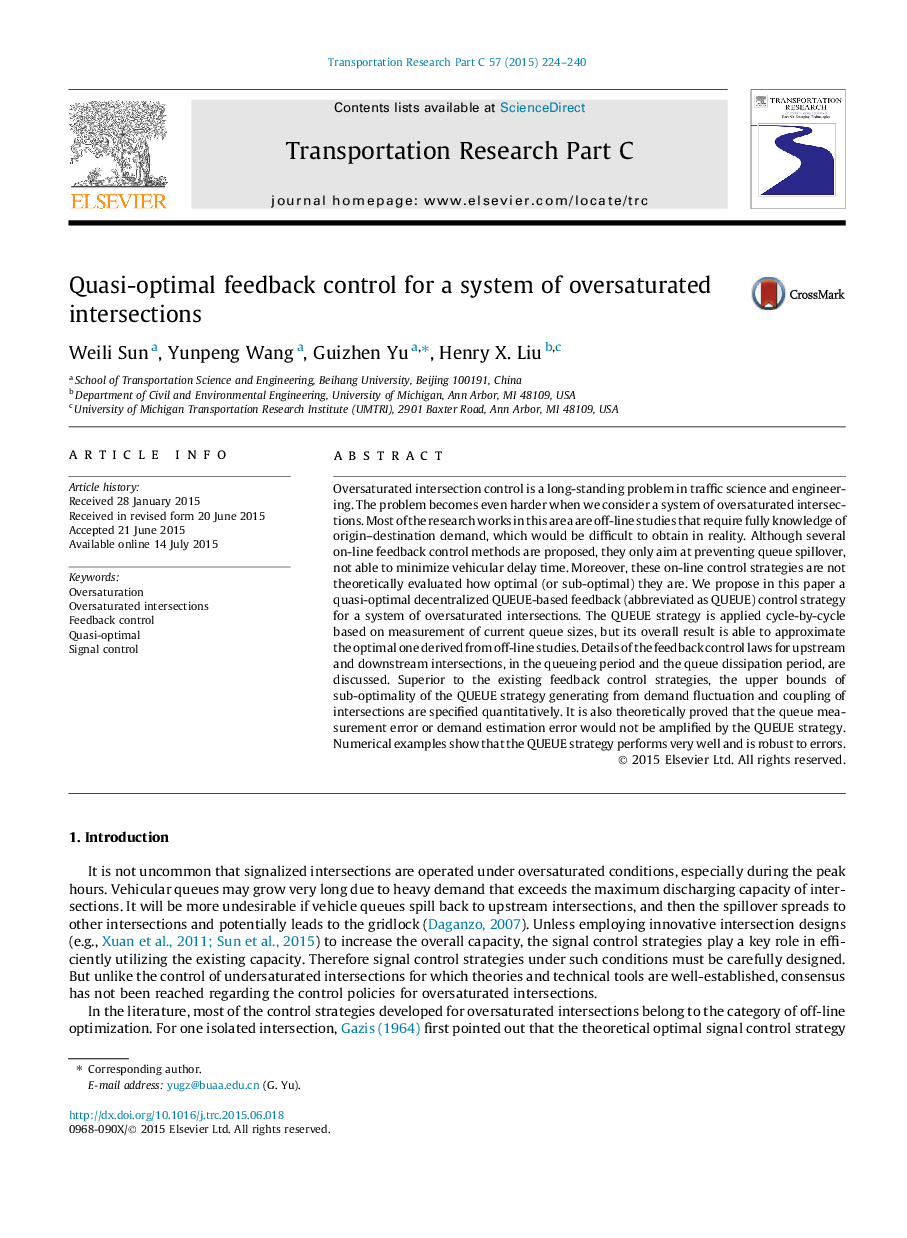| کد مقاله | کد نشریه | سال انتشار | مقاله انگلیسی | نسخه تمام متن |
|---|---|---|---|---|
| 526381 | 869101 | 2015 | 17 صفحه PDF | دانلود رایگان |
• A QUEUE-based feedback control strategy for oversaturated intersections is proposed.
• The QUEUE strategy runs cycle-by-cycle based on queue measurement at each intersection.
• The QUEUE strategy is able to approximate the optimal one derived from off-line studies.
• Sub-optimality of the QUEUE strategy is theoretically bounded.
• Measurement errors would not be amplified by the QUEUE strategy.
Oversaturated intersection control is a long-standing problem in traffic science and engineering. The problem becomes even harder when we consider a system of oversaturated intersections. Most of the research works in this area are off-line studies that require fully knowledge of origin–destination demand, which would be difficult to obtain in reality. Although several on-line feedback control methods are proposed, they only aim at preventing queue spillover, not able to minimize vehicular delay time. Moreover, these on-line control strategies are not theoretically evaluated how optimal (or sub-optimal) they are. We propose in this paper a quasi-optimal decentralized QUEUE-based feedback (abbreviated as QUEUE) control strategy for a system of oversaturated intersections. The QUEUE strategy is applied cycle-by-cycle based on measurement of current queue sizes, but its overall result is able to approximate the optimal one derived from off-line studies. Details of the feedback control laws for upstream and downstream intersections, in the queueing period and the queue dissipation period, are discussed. Superior to the existing feedback control strategies, the upper bounds of sub-optimality of the QUEUE strategy generating from demand fluctuation and coupling of intersections are specified quantitatively. It is also theoretically proved that the queue measurement error or demand estimation error would not be amplified by the QUEUE strategy. Numerical examples show that the QUEUE strategy performs very well and is robust to errors.
Journal: Transportation Research Part C: Emerging Technologies - Volume 57, August 2015, Pages 224–240
